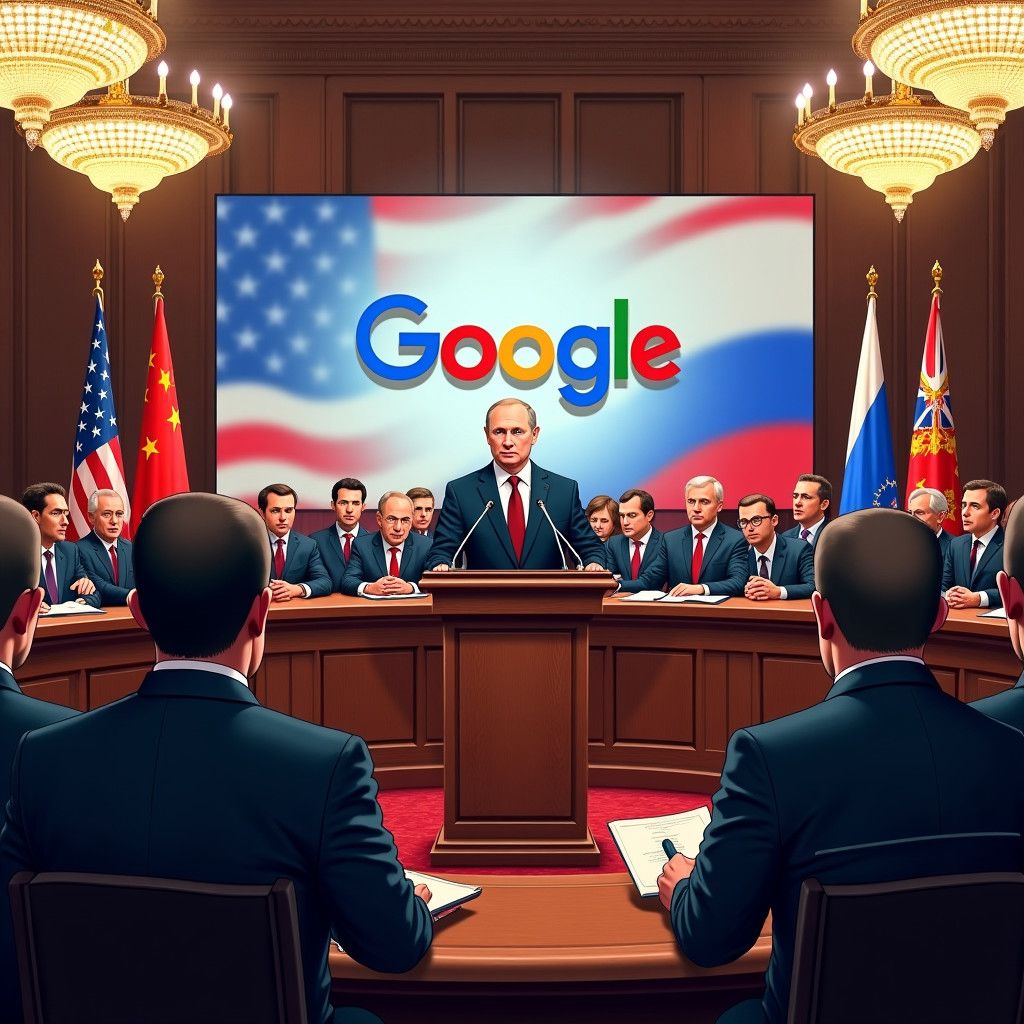In recent events, Russian President Vladimir Putin has openly criticized Google, asserting that the tech giant serves U.S. political interests. This accusation comes in the wake of escalating tensions between Russia and the West, and it reflects broader concerns regarding the influence of major U.S. tech companies on the global information landscape. With Google’s pervasive role in managing information flows, this clash raises important questions about digital sovereignty, censorship, and the ethics of operating in a politically charged environment.
Putin’s criticism stems from a broader narrative that has been building in Russia, where state media and government officials have increasingly pointed fingers at foreign tech companies, labeling them as tools of American diplomacy. According to Putin, Google’s algorithms and platform policies often align with U.S. geopolitical strategies, undermining the voice of nations like Russia in the digital space. This accusation mirrors sentiments shared by various nations across the globe, where the dominance of U.S. firms in the tech sector is viewed with skepticism.
One recent example illustrating this clash occurred when a popular Russian media outlet reported that Google was prioritizing content that painted Russia in a negative light, particularly concerning the ongoing conflict in Ukraine. The Kremlin has taken these claims seriously and has sought to regulate how foreign platforms operate within its borders. For instance, in an attempt to curtail perceived Western influence, Russia has implemented stricter laws requiring tech companies to store data on Russian citizens within the country. This strategy aims to reclaim control over digital narratives and protect national interests.
Moreover, the issue of censorship is central to the criticism levied against Google. The company has faced accusations of bias in content moderation, particularly regarding politically sensitive topics. For instance, during significant political protests in Russia, many activists voiced concerns about censorship, claiming their content was disproportionately flagged or removed from the platform. This situation highlights the delicate balance tech companies must maintain while operating globally, particularly in countries with stringent media regulations and authoritarian governance.
In response to these mounting pressures, some Russian lawmakers have suggested the possibility of creating a homegrown alternative to Google. Such a move would not only allow for more control over content moderation but also diminish dependency on U.S. technology. This concept is not unique to Russia; countries like China have already established their own ecosystem of digital services that operate independently from Western influence. The development of a Russian alternative could potentially reshape the landscape of information accessibility within the country, providing a platform that is more aligned with state narratives.
The global implications of these interactions extend far beyond national borders. The ongoing challenge of digital sovereignty is one that many nations face today. Emerging economies are grappling with how to navigate relationships with dominant tech powers that significantly influence public discourse and information access. For instance, countries in Africa and Southeast Asia have started to echo similar sentiments as they seek to cultivate local tech ecosystems that are less reliant on Western narratives.
While the political discourse surrounding this issue is complex and multi-faceted, what remains evident is the critical need for transparency and accountability among tech giants. Companies like Google must recognize their influence and take proactive steps to ensure their platforms serve a diverse array of perspectives, without favoring any particular geopolitical agenda. After all, the integrity of information is paramount in fostering a healthy democratic society.
Scholars and experts in the field of digital policy increasingly argue for a more balanced approach that incorporates local voices and diverse viewpoints into the algorithms that dictate what users see on their platforms. This would not only enrich the information landscape but also empower users around the globe, allowing them to experience a multiplicity of narratives rather than a curated, homogenized version influenced by a singular political agenda.
In conclusion, Putin’s criticisms of Google echo a growing concern among nations increasingly wary of foreign influence in their domestic informational arenas. The conversations surrounding digital sovereignty, censorship, and the roles of tech giants will continue to evolve as countries grapple with the implications of these regulations on their own sovereignty and expression. As the world watches, the necessity for a more equitable and inclusive digital realm grows ever more pressing, requiring diligent efforts from both governments and tech companies alike.












